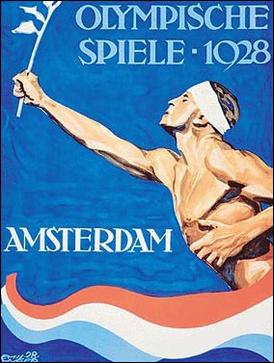| Personal information | |||||||||||||||||||||||||||||||||||||||
|---|---|---|---|---|---|---|---|---|---|---|---|---|---|---|---|---|---|---|---|---|---|---|---|---|---|---|---|---|---|---|---|---|---|---|---|---|---|---|---|
| Nationality | |||||||||||||||||||||||||||||||||||||||
| Born | 18 August 1986 Bremerhaven, West Germany | ||||||||||||||||||||||||||||||||||||||
| Sport | |||||||||||||||||||||||||||||||||||||||
| Sport | Swimming | ||||||||||||||||||||||||||||||||||||||
| Strokes | Breaststroke | ||||||||||||||||||||||||||||||||||||||
Medal record
| |||||||||||||||||||||||||||||||||||||||
Hendrik Feldwehr (born 18 August 1986) is a German swimmer, who swam at the 2012 Summer Olympics. [1] [2]
| Personal information | |||||||||||||||||||||||||||||||||||||||
|---|---|---|---|---|---|---|---|---|---|---|---|---|---|---|---|---|---|---|---|---|---|---|---|---|---|---|---|---|---|---|---|---|---|---|---|---|---|---|---|
| Nationality | |||||||||||||||||||||||||||||||||||||||
| Born | 18 August 1986 Bremerhaven, West Germany | ||||||||||||||||||||||||||||||||||||||
| Sport | |||||||||||||||||||||||||||||||||||||||
| Sport | Swimming | ||||||||||||||||||||||||||||||||||||||
| Strokes | Breaststroke | ||||||||||||||||||||||||||||||||||||||
Medal record
| |||||||||||||||||||||||||||||||||||||||
Hendrik Feldwehr (born 18 August 1986) is a German swimmer, who swam at the 2012 Summer Olympics. [1] [2]

The 1928 Summer Olympics, officially the Games of the IX Olympiad, was an international multi-sport event that was celebrated from 28 July to 12 August 1928 in Amsterdam, Netherlands. The city of Amsterdam had previously bid for the 1920 and 1924 Olympic Games. Still, it was obliged to give way to war-torn Antwerp in Belgium for the 1920 Games and Pierre de Coubertin's Paris for the 1924 Games.

The 1994 Winter Olympics, officially known as the XVII Olympic Winter Games and commonly known as Lillehammer '94, were an international winter multi-sport event held from 12 to 27 February 1994 in and around Lillehammer, Norway. Having lost the bid for the 1992 Winter Olympics to Albertville in France, Lillehammer was awarded the 1994 Winter Games on 15 September 1988, two days before the 1988 Summer Olympics opening ceremonies at the 94th IOC Session in Seoul, South Korea. Due to the calendar changes made in 1985, this was the only time that the Winter Olympics took place two years after the previous Winter Games, and the first to be held in a different year from the Summer Olympics. This was the second Olympic Games of any type hosted in Norway — the first being the 1952 Winter Olympics in Oslo — and the fourth Olympics overall to be held in a Nordic country, after the 1912 Summer Olympics in Stockholm, Sweden, and the 1952 Summer Olympics in Helsinki, Finland. Lillehammer is the northernmost city ever to host the Olympic Games.

The 1920 Summer Olympics, officially known as the Games of the VII Olympiad and commonly known as Antwerp 1920, were an international multi-sport event held in 1920 in Antwerp, Belgium.

The 1952 Winter Olympics, officially known as the VI Olympic Winter Games and commonly known as Oslo 1952, was a winter multi-sport event held from 14 to 25 February 1952 in Oslo, the capital of Norway.

The 1960 Winter Olympics were a winter multi-sport event held from February 18 to 28, 1960, at the Squaw Valley Resort in Squaw Valley, California, United States. The resort was chosen to host the Games at the 1956 meeting of the International Olympic Committee (IOC). Squaw Valley was an undeveloped resort in 1955, so the infrastructure and all of the venues were built between 1956 and 1960 at a cost of US$80,000,000. The layout was designed to be intimate, allowing spectators and competitors to reach most of the venues on foot.
The 1980 Summer Olympics, officially known as the Games of the XXII Olympiad, were an international multi-sport event held in Moscow, Russian SFSR, Soviet Union from 19 July to 3 August. A total of 5,179 athletes representing 80 National Olympic Committees (NOCs) participated in 203 events in 22 sports. They were the first Games to be staged in a communist nation.

The 1972 Summer Olympics, officially known as the Games of the XX Olympiad, took place in Munich, West Germany, from 26 August through 11 September 1972. A total of 7,134 athletes from 121 National Olympic Committees (NOCs) competed in 195 events from 23 sports.

The 1976 Winter Olympics, officially known as the XII Olympic Winter Games, was a winter multi-sport event held in Innsbruck, Austria, from 4 to 15 February 1976. A total of 1,123 athletes representing 37 National Olympic Committees (NOC) participated in 37 events from 10 different sports and disciplines. Two events were contested for the first time: the figure skating discipline of ice dancing, and the men's 1,000 metres in speed skating.
The 1952 Winter Olympics, officially known as the VI Olympic Winter Games, took place in Oslo, Norway, from 14 to 25 February 1952. A total of 694 athletes representing 30 National Olympic Committees (NOCs) participated in the Games, taking part in 22 events from 6 sports.

Germany competed at the 1992 Summer Olympics in Barcelona, Spain. It was the first time the European nation participated after German reunification in 1990 and for the first time as a single nation since 1936. Previously, West Germany and East Germany had sent independent teams to the Games. 463 competitors, 300 men and 163 women, took part in 237 events in 26 sports.

The Netherlands competed at the 1936 Summer Olympics in Berlin, Germany. 165 competitors, 145 men and 20 women, took part in 75 events in 15 sports.

Hendrik Reiher is a German former rowing cox. He competed for the SG Dynamo Potsdam / Sportvereinigung (SV) Dynamo. He won medals at several Summer Olympics as well as at international rowing competitions. He competed for East Germany until 1990, and from the 1991 rowing season for Germany after the German reunification.
Hendrik "Henri" Verbrugghe was a Belgian sprint canoeist who competed from the early 1950s to the mid-1960s. He won a gold medal in the K-2 1000 m event at the 1958 ICF Canoe Sprint World Championships in Prague.
Hendrik Hagens was a Dutch fencer. He competed in the team sabre event at the 1928 Summer Olympics.
Hendrik Jung is a German fencer. He competed in the team sabre event for East Germany at the 1980 Summer Olympics.